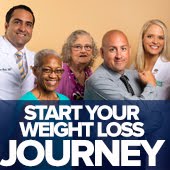5 Facts About Cholesterol
8:52 AMCholesterol Defined
Cholesterol is a waxy, fat-like material that is both created naturally by the body and taken in through food sources. It is a general word that pertains to two different types of cholesterol, low-density lipoproteins (LDL), also known as “bad” cholesterol, and high-density lipoproteins (HDL), also known as “good” cholesterol. The term “high cholesterol” refers to heightened levels of LDL.
Cholesterol in the Body
The liver creates all of the cholesterol the human body needs. Cholesterol is circulated through the blood, aiding in production of hormones and vitamins and eventually, it gets broken down into bile salts to help the body absorb nutrients from ingested foods. Cholesterol is found naturally in foods from animal sources, including poultry, meat and high-fat dairy products.
Good vs. Bad Cholesterol
The “good” HDL cholesterol absorbs excess “bad” LDL cholesterol and carries it to the liver to be cleansed from the body. HDL protects against blood clots, helps keep the blood vessels healthy and can lower a person’s risk for heart disease and stroke. LDL comprises the majority of the body’s cholesterol levels, contributing to plaque buildup in the arties, damaging the insides of blood vessels and ultimately creating a higher risk of heart-related health complications. Though the body needs some LDL for normal body functions, heightened LDL levels are harmful and potentially fatal.
Genetics, Lifestyle and Cholesterol
While studies have shown that cholesterol levels may have some genetic component, lifestyle also plays a large role in the HDL and LDL levels in your body. Certain cholesterol-specific genetic conditions, including familial hypercholesterolemia – a predisposition to extremely heightened or difficult-to-control high LDL levels – put certain individuals at greater risk than others for cholesterol-centric heart conditions. More often, though, high LDL levels result from an LDL-rich diet, low levels of physical exercise, smoking and other unhealthy habits. Lifestyle changes typically aid in lowering LDL levels and raising HDL levels, keeping people healthy for years to come.
Lowering LDL Cholesterol Levels
While LDL may seem scary, it is possible to reverse current LDL levels and increase HDL levels through lifestyle changes, diet changes and more:
- Make changes to your daily diet. Avoid saturated fats and oils, trans fats, partially hydrogenated oils, fatty meats, dairy products with 1% or more milk fat and fast foods. Instead, eat oats, salmon, nuts, tea, beans and other nutrient-dense, high-fiber foods to help reduce the LDL in your body. Drink plenty of water to help detoxify as well.
- Exercise regularly. Losing excess weight helps to reduce the payload of your heart and blood vessels. This can either reduce your risk of or prevent diseases such as diabetes, high blood pressure, gout, cancer, heart attacks and stroke.
- Stop smoking. The chemicals is smoking products make it tough for your body to get rid of the bad cholesterol in your bloodstream. Smoking cessation leads to a heightened ability to detoxify LDL from your body and improve HDL levels.
- Consult a physician about cholesterol monitoring and possible prescription medications. Your primary care physician will be able to decide if a cholesterol-lowering medication is right for your health plan. Treatments for high cholesterol include statins, a medication that helps lower your risk of heart attack or stroke by preventing the liver from producing cholesterol internally. Talk to your primary care physician to see if this is right for you.
Having your cholesterol checked regularly is important because there are no symptoms of high cholesterol. Contact your primary care physician to schedule testing. If you do not have a primary care physician, visitwww.mygbmcdoctor.com or call 443-849-GBMC.






0 comments